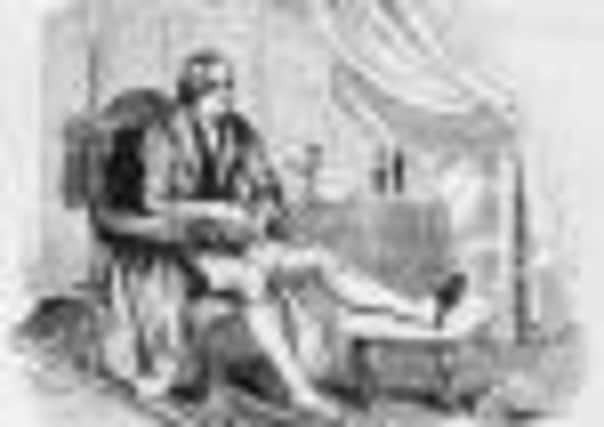50 year-old gout drug could prevent heart disease


The study by specialists at Dundee University has shown that the anti-gout drug, allopurinol, can be used to benefit people suffering from heart disease.
They are now seeking funding for a large-scale clinical trial involving thousands of patients that will seek to prove that allopurinol can improve survival rates for heart disease patients.
Advertisement
Hide AdAdvertisement
Hide AdAllan Struthers, Professor of Cardiovascular Medicine at Dundee University who led the research, said the study team had already proved that allopurinol reduces the thickening of the heart muscle wall, known as left ventricular hypertrophy (LVH).
Such thickening is known to be a “modifiable risk factor” for future cardiovascular events and the team believes patients with heart disease may be able to prevent adverse outcomes by taking the drug.
He said: “It is a very significant development because the thickening of the muscle of the heart is well known to predict all sorts of horrible conditions like heart failures, strokes and sudden death. And I think our work is an important step in the right direction in being able to prevent such adverse outcomes.”
Prof Struthers explained that previous studies by the team at the university’s Division of Cardiovascular and Diabetes Medicine had shown that angina sufferers who were given allopurinol were able to exercise longer and harder before they experienced the chest pain that occurs when the heart runs short of oxygen. This means the drug reduces symptoms and has the potential to reduce the need for angioplasty, surgery and hospital admissions.
He said the latest research, funded by the Medical Research Council (MRC) and published in the Journal of the American College of Cardiology, represented another “piece of the jigsaw” in establishing the benefits of allopurinol to cardiac health.
Prof Struthers added: “The fact we are able to show this very promising effect means that we hopefully will get the funding to study thousands of patients and make sure that allopurinol does do what we hope it will do – reduce sudden deaths, heart failure and strokes in comparison to a control group.”
He said: “This drug is available – it is still in use today – and it’s cheap. And one of the great things is to find a new use for a cheap drug. The fact allopurinol has been shown to work in several different ways means it possesses exciting potential for use in heart disease patients.”
In the latest research Prof Struthers and his team looked at a sample group of 66 heart disease patients, half of whom who were given allopurinol and half a placebo for nine months. The results showed that the thickness of the heart muscle wall was significantly reduced in the group who took allopurinol.